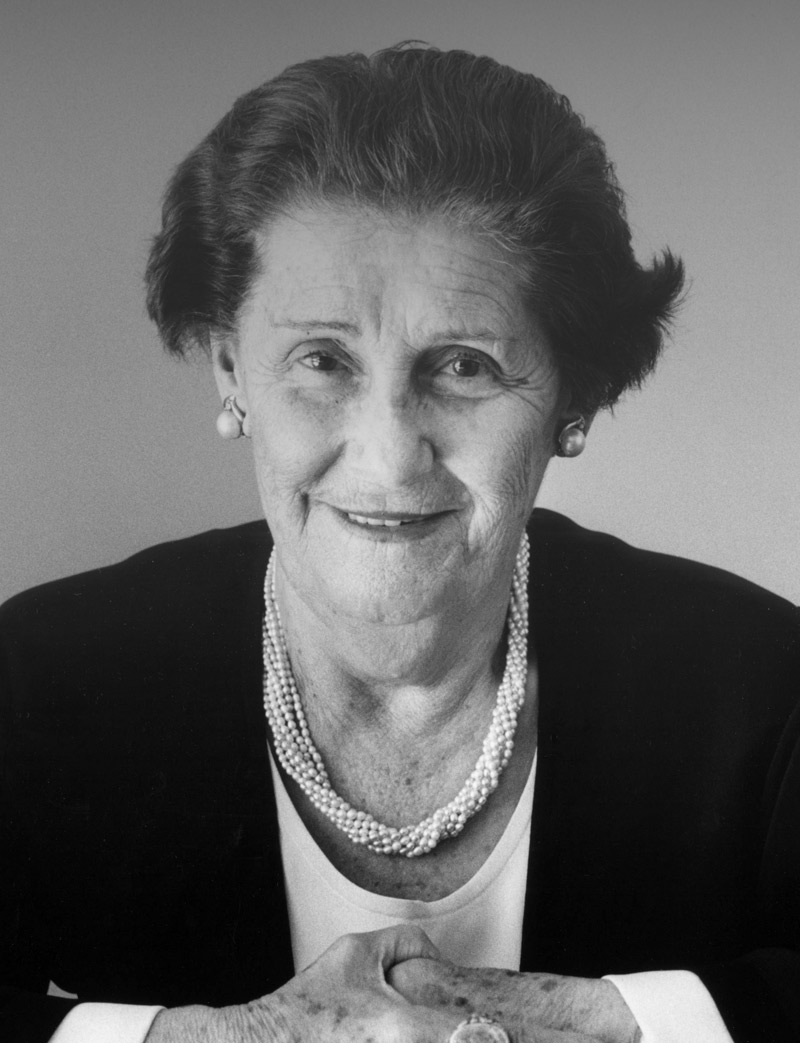
Born: August 18, 1927
Birthplace: Chust, Czechoslovakia
Holocaust Experience: Auschwitz- Birkenau; forced laborer in Taucha Labor camp; death march in April 1945
Edith Singer Z"L
“Hate is such a simple word. There is a pain in my heart that will never diminish.”
Edith Singer was born Etu Slomovich to Samuel and Frida Slomovich on August 18, 1927 in Chust, Czechoslovakia. She was the youngest of three children in a middle class, observant Jewish family. By Edith’s sixth birthday, Hitler had risen to power in Germany and was promoting a racist doctrine that he sought to spread throughout Europe. Hungary formed an alliance with Germany and invaded Czechoslovakia in the late 1930s. Edith remembers soldiers riding into her town on bicycles. Although the Hungarians immediately set up anti-Jewish legislation, people were relieved that it was not the Nazis who had invaded.
During the occupation, Jewish young men, including Edith’s brother, were sent to labor camps to work for the German war effort. A curfew was implemented that restricted the hours that Jews were allowed to be outside. By 1944, Jewish families were removed from their homes and forced into ghettos that were fenced off from the rest of the town. Edith’s family was only allowed to take what would fit on a single cart. They were moved into a one-bedroom apartment which they shared with fourteen other people. Fortunately, Edith’s family did not suffer from starvation, because they had brought enough food with them from home. They were in the ghetto for about a month. The women stayed in the ghetto while the Gestapo took the men for forced labor. Later, Edith and her family were forced into cattle-cars and traveled for three days to Auschwitz – Birkenau Extermination Camp.
Read More
Upon arrival, men and women were separated from each other and searched for valuables. Dr. Josef Mengele, called the “Angel of Death,” stood in front of the prisoners like a “beautiful statue” with white gloves and a riding crop. With his crop, he would point to each prisoner to go to the left or the right. Those who he deemed unfit were sent to the gas chambers on the left and able-bodied men and women were sent to the right to work as slave laborers. It was at this moment that Edith saw her father and brother for the last time. Edith, her mother and sister made it through selection. During the selection process, an announcement was made for all twins to step aside. Both Edith and her mother had twin siblings, but they chose to keep this knowledge a secret. Edith describes this decision as a link in her chain of survival, because she knows now that Dr. Mengele performed medical experiments on twins.
In Auschwitz, fear and hunger were constant companions. Survival could depend on how large your piece of bread was in the morning. The prisoners reported for roll call twice a day, and people died from the harsh conditions every few hours. On the morning of her 17th birthday, Edith and fellow inmates were lined up and sent to have prisoner numbers tattooed on their arms. With the tattoo, A-13215, Edith realized that she was not going to be murdered at that time. Her relief acted as anesthesia against the sting of the needle. She later realized that the number 18, the date of her birthday, means chai – ‘life’ in Hebrew.
Edith was forced to work at a slave labor camp in a munitions factory making anti-missile equipment. She secretly sabotaged the equipment. Later, she was sent on a three-week death march to another camp. She ran away during the death march, hid in a village for several days, and was fortunate to be liberated by the Soviet Army. After liberation, Edith went to live in a displaced persons camp, Poltzei Schule, in the town of Heidenheim an der Brenz, in the American zone in Bavaria, Germany. It was there that she met the man she would eventually marry, Michael Singer, who had fought with the Soviet Army during World War II. In 1959, American relatives sent them papers to immigrate to the United States. Edith and Michael came straight to Los Angeles. They are blessed with two daughters, Esther and Shula, and four grandchildren.
Edith, her mother and her sister all survived the Holocaust. She speaks at the Museum of Tolerance to keep the memory alive of her father, brother and the other six million Jews who perished during the Holocaust.
Z”L stands for the Hebrew words meaning “may his/her memory be a blessing.”